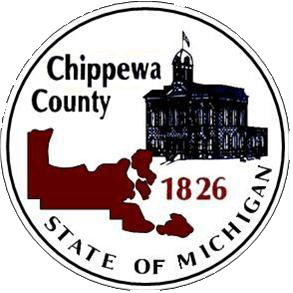

Chippewa
County,
Michigan
91st District Court - Garnishment
What is garnishment? Garnishment is a court procedure allowing you to collect your judgment directly from the defendant’s wages, bank account, or other source such as income tax refunds. If you want to file a garnishment, see the court clerk for the proper forms. Instructions are included with the forms.
How do I get a garnishment? To get a garnishment, you will first need to know where the defendant lives and works, what assets s/he has and where these assets are located, and any other information which identifies the defendant and his/her property.
If you have the information described above, you can start the process for a garnishment.
If you don’t have the information described above, you will need to order the defendant to appear in court for questioning through a process called discovery. You can start this process by filing a discovery subpoena.
Filing a request for garnishment You must wait 21 days after your small claims judgment was signed before you can get a garnishment. Form MC 12 or MC 13, Request and Writ of Garnishment, is used to start the garnishment process.
A periodic writ of garnishment (MC 12) is used to garnish the defendant’s wages, rent payments, land contract payments or other debt which is paid to the defendant on a periodic basis. A periodic garnishment is valid for up to 90 days or until the judgment, interest and costs are paid off, whichever occurs first.
A non-periodic writ of garnishment (MC 13) is used to garnish the defendant’s bank account or other property. Once money has been garnished under the non-periodic writ, the writ is no longer valid. If there is remaining balance on the judgment, you must get another writ to collect more money.
Writ for Garnishment of Income Tax Refund/Credit (MC52) is used to garnish State Income Tax.
Fill in the names and addresses of both defendant and the garnishee on the request part of the form. The garnishee is the person or business who has control or possession of the defendant’s money. Once you complete the request, you must file it with the district court that entered your small claims judgment. The filing fee is $15.00
The court will issue the writ (order) by signing the form. The request and writ must be served on the garnishee along with the disclosure, form MC 14. If the garnishment is for periodic payments, include a $6.00 disclosure fee with the forms. The cost of serving the writ varies.
When do I get my money from the garnishment? The garnishee has 14 days after the writ is served to let you, the court and the defendant know if any money is available for garnishment. This information will be provided on form MC 14, Garnishee Disclosure. If you are trying to garnish wages, you_will only receive part of the wages based on a federal formula.
If money is available, it will be withheld from the defendant right away. However, this money will be held for 28 days to allow the defendant time for objections. Use Objection to Garnishment form MC49. If there are no objections, the withheld money will be automatically sent to you after 28 days. If the garnishment is for periodic payments, money will continue to be sent to you as payments become due to the defendant until the writ expires in 182 days.
What else can I do? If your case against the defendant involved a traffic accident, you can ask the court for an abstract of judgment which suspends the defendant’s Michigan driver license until s/he pays the judgment. You must wait 30 days after the judgment date before you can get an abstract of judgment. You need to provide the defendant’s full name, date of birth and Michigan driver license number. There is no filing fee. The court clerk should have the necessary forms.